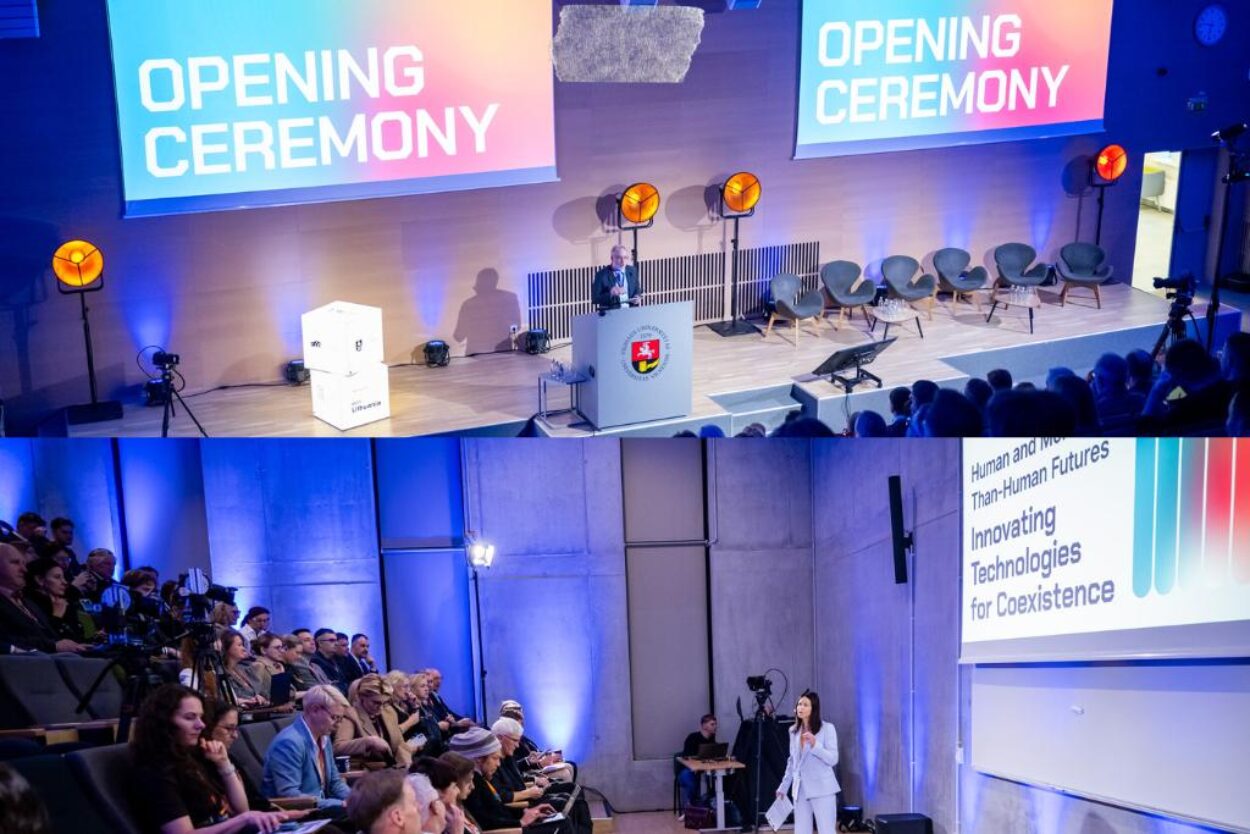Led by Vice Provost for International Activities Duane Boning, 10 members of MIT’s faculty traveled to Lithuania earlier this month to share ideas and expertise on a varied menu of technological, societal, and ecological challenges.
Taking place in the cities of Vilnius and Kaunas and attended by over 500 scientists, business leaders, educators, and government officials, the conference – titled “Human and More-Than-Human Futures: Innovating Technologies for Coexistence” – was designed to bolster ties between MIT and a consortium of Lithuanian universities, research centers, and companies. The interdisciplinary event examined broad themes related to technological transformations associated with resilient cities, energy, biotechnology, education, quantum technologies, and other fields.
“By linking MIT scholars with Lithuanian partners, we co-create knowledge, accelerate breakthroughs, and cultivate talent for the world’s hardest problems,” said Gediminas Urbonas, Associate Professor at the MIT School of Architecture and Planning and a conference presenter.
“We hope this conference marks the beginning of a long-term partnership that will strengthen Lithuania’s research, promote innovation, and open up new spaces for our talents to collaborate with U.S. scientists,” Research Council of Lithuania Council Chairman Dr. Gintaras Valincius added.
The October 8-10 conference followed the signing of an agreement with a Lithuanian consortium representing major Lithuanian universities, industry and research institutions. The collaboration is managed by MIT International Science & Technology Initiatives (MISTI). Other planned initiatives include MIT student internships in Lithuania and training of Lithuanian researchers at MIT, as well as early-stage research grants.
Through plenary sessions and group discussions, conference participants examined “more-than-human” viewpoints that acknowledge the agency of humans, animals, plants, and artificial intelligence to promote justice, wellbeing, and caring relationships. Attendees also engaged in a role-playing activity, Wetland.games, created in collaboration with scientists, programmers, and designers in Europe to foster multi-species perspectives in environmental planning.
Hosting the conference were VMU in Kaunas and Vilnius University in Vilnius, Lithuania. The opening ceremony included welcome addresses by Boning and several Lithuanian officials, including remarks by Lithuanian President H.E. Gitanas Nausėda, which were delivered by an advisor to the President. Professor Jessika Trancik of the MIT Institute for Data, Systems and Society (IDSS) gave the first day’s keynote address on “Energy Systems”, while day two began with a keynote by MIT Policy Lab Managing Director Drew Story, who spoke on the lab as “A Model for Academic Engagement in Public Policy”.
Other MIT faculty presented during panel sessions related to livable cities, climate-resilient communities, AI and cybersecurity, factories of the future, biology and genetics, the future of defense and security, and more. The conference provided opportunities for participants to not only explore strategically important topics, but also aspirations for a longer-term and expanded collaboration between MIT and Lithuania.
Woven throughout the conference was an emphasis on exploring ways to create a better future in which people, technology, and nature harmoniously coexist. It included a strong focus on moving beyond “smart” technologies to self-learning systems that adapt to humans and take the natural environment into account.
“Human and More-Than-Human Futures: Innovating Technologies for Coexistence” was organized by the Lithuanian Consortium, an independent initiative supporting engagement between Lithuanian science and business and MIT, and supported by the Research Council of Lithuania, Northway Biotech and Kazickas Family Foundation.
Members of the Lithuanian Consortium for collaboration with MIT: Kaunas University of Technology, Klaipėda University, Vilnius University, Vytautas Magnus University, Vilnius Gediminas Technical University, Vilnius Academy of Arts, Lithuanian Research Centre for Agriculture and Forestry, Lithuanian Energy Institute, AB Ignitis Group, LTG Group, UAB Euromonitor International – Eastern Europe, and UAB Novian.

Photos by Jonas Petronis